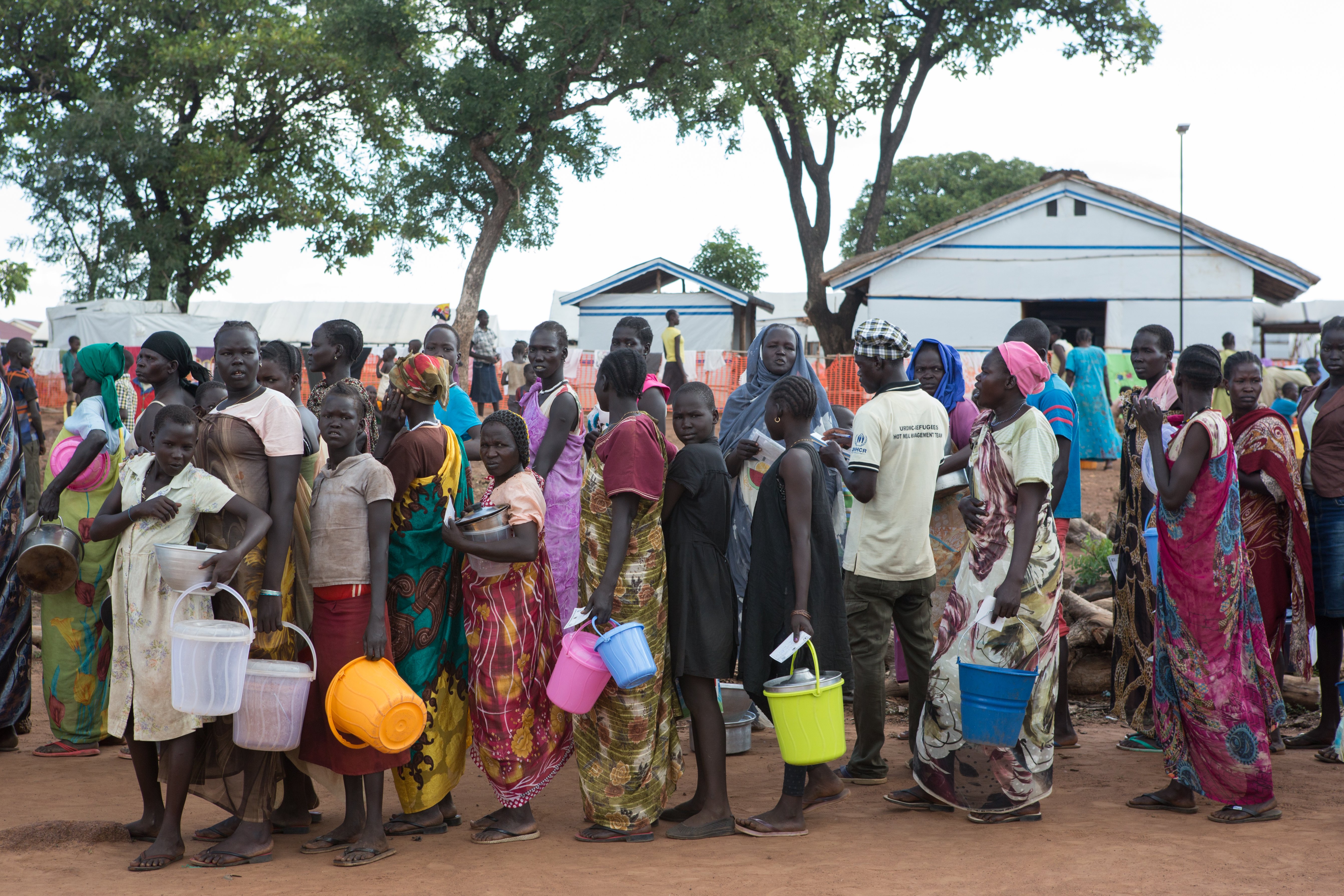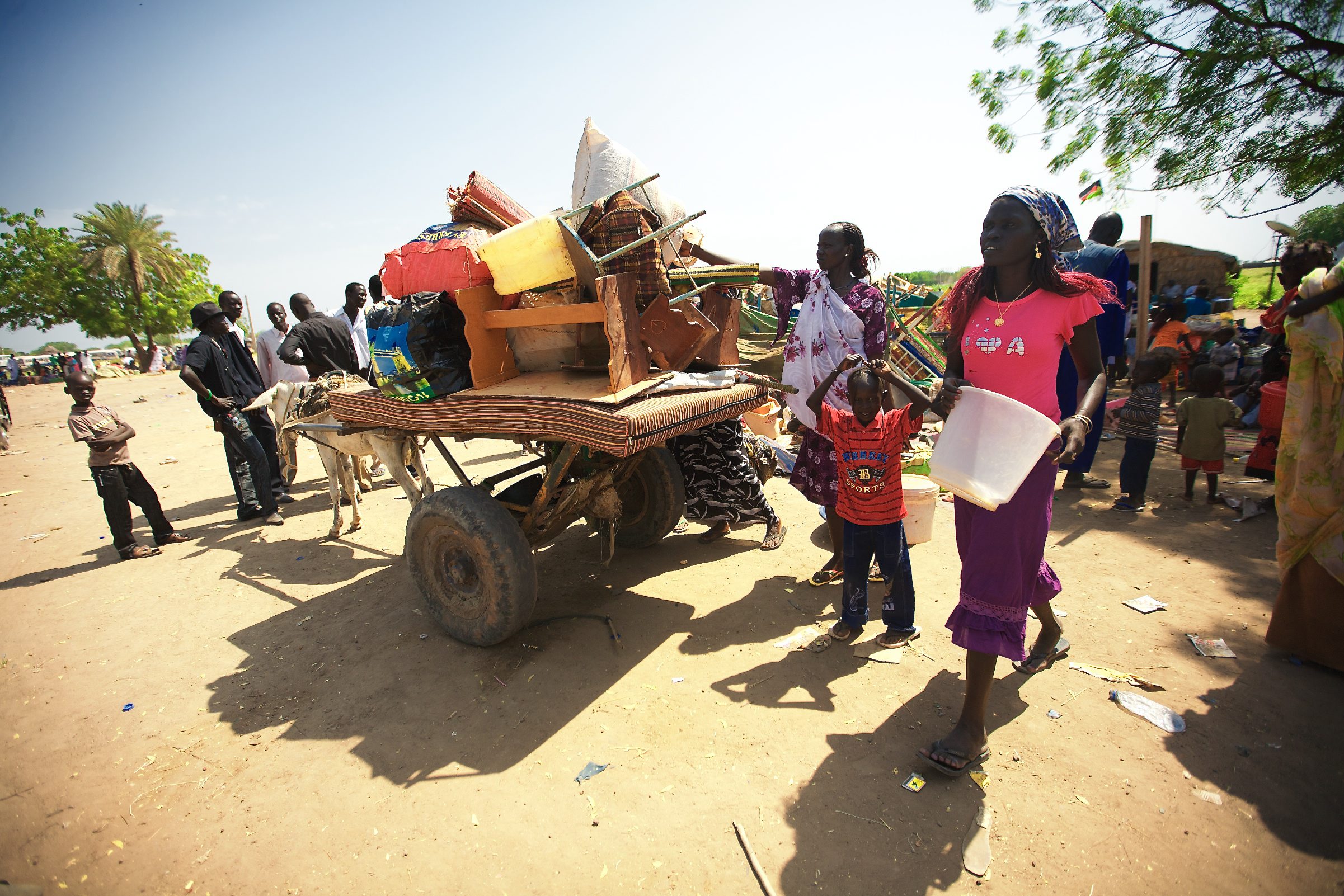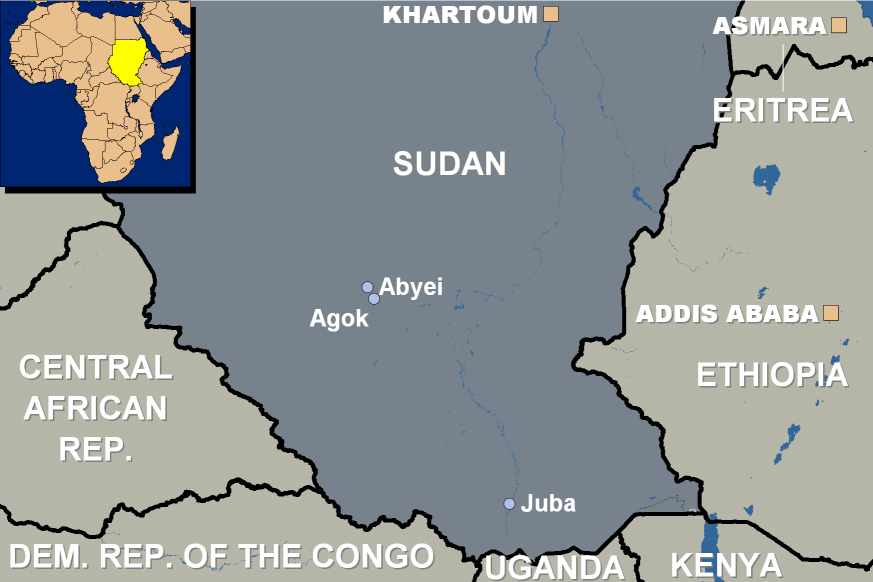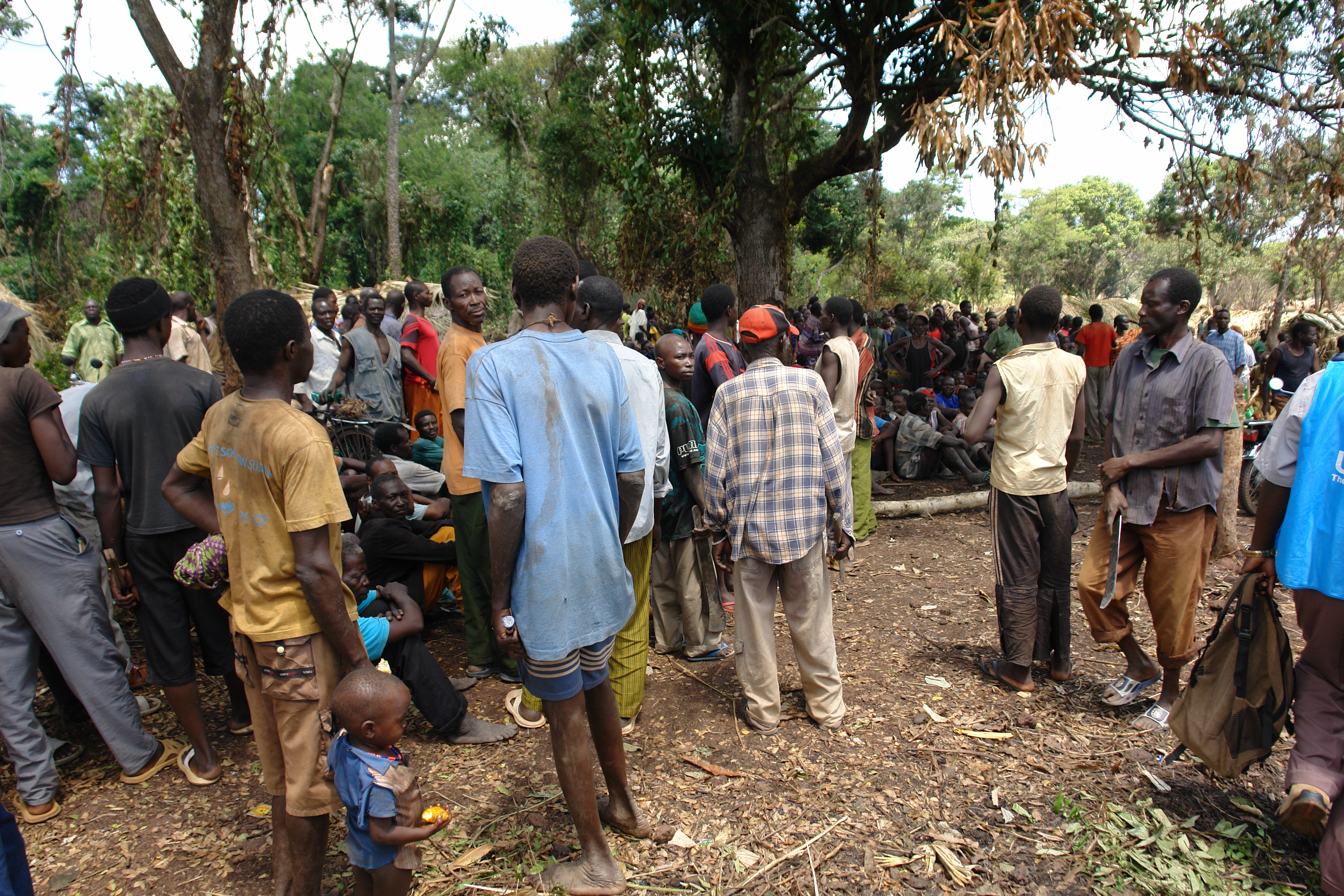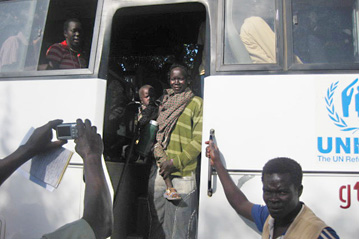South Sudan/DRC: refugees set to return, Dinkas reach Juba
South Sudan/DRC: refugees set to return, Dinkas reach Juba
As South Sudanese refugees start to go back to their homeland after more than two decades of exile, a group of refugees from the Democratic Republic of the Congo (DRC) is getting ready to leave South Sudan to return to their home country after 40 years in exile.
We are in the process of registering some 1,700 Congolese refugees who have been in South Sudan for the past four decades. The group fled post-independence turmoil and the coup that brought Mobutu Sese Seko to power in 1965 in the country he renamed Zaire (now DRC). They settled in Juba, which recently became the capital of South Sudan, also known as New Sudan. Even though a large number of the group were born in South Sudan and are integrated into Sudanese society, some people still expressed strong desires to go to their ancestors' land and asked UNHCR to assist them to repatriate. It is now possible for us to do so.
We have been working in close cooperation with the Sudanese Commission of Refugees (COR) in identifying the refugees and registering them. The registration is scheduled to be completed on Friday and UNHCR expects to start the first repatriation by plane as soon as possible. Most of the Congolese will go back to areas near Kisangani, Bumba, Akete or Banduka, in the eastern part of the DRC.
Meanwhile, we are continuing preparations for the start of the voluntary repatriation of Sudanese refugees from neighbouring countries, with the first convoy tentatively planned to leave Kakuma camp in north-western Kenya in mid-December for Kapoeta, 180 kilometres east of Juba, and for Bor, 200 kilometres north of the capital of New Sudan.
Last week we helped two delegations of refugees from Kakuma camp go to Kapoeta and Bor to assess for themselves the situation on the ground and to share the information with their fellow refugees back in Kakuma. In spite of the few services available after two decades of war - poor roads, limited health care facilities and schools - many refugees have told us they still wish to go back to their homeland.
The 21-year-long conflict in south Sudan (brought to an end by a peace agreement in January, 2005) displaced more than four million persons within Sudan, while another 500,000 persons found refuge in neighbouring countries.
Just to update you on the movement of 12,000 Dinka herdsmen and their half million cattle that we told you about last week. The Dinka, who had been displaced within South Sudan, decided to migrate with their cattle back to their region of origin, Bor, in Jongley State. They have split into 34 groups, and the first groups have begun to arrive in Juba in the past few days. In order to avoid congesting the city, SPLA (Sudan People's Liberation Army) soldiers are escorting different groups of men and cattle, directing them through the outskirts of Juba and helping them to cross the bridge in direction of Bor - the only crossing point over the White Nile river in the region. The groups are moving slowly and it will take several weeks for them to reach Bor, which is located 180 kilometres north of Juba. The only road between the two towns is also heavily mined and UN agencies are concerned that many cattle will die during the migration. It is estimated that it will take a whole month for all the cattle camps to pass the bridge.

